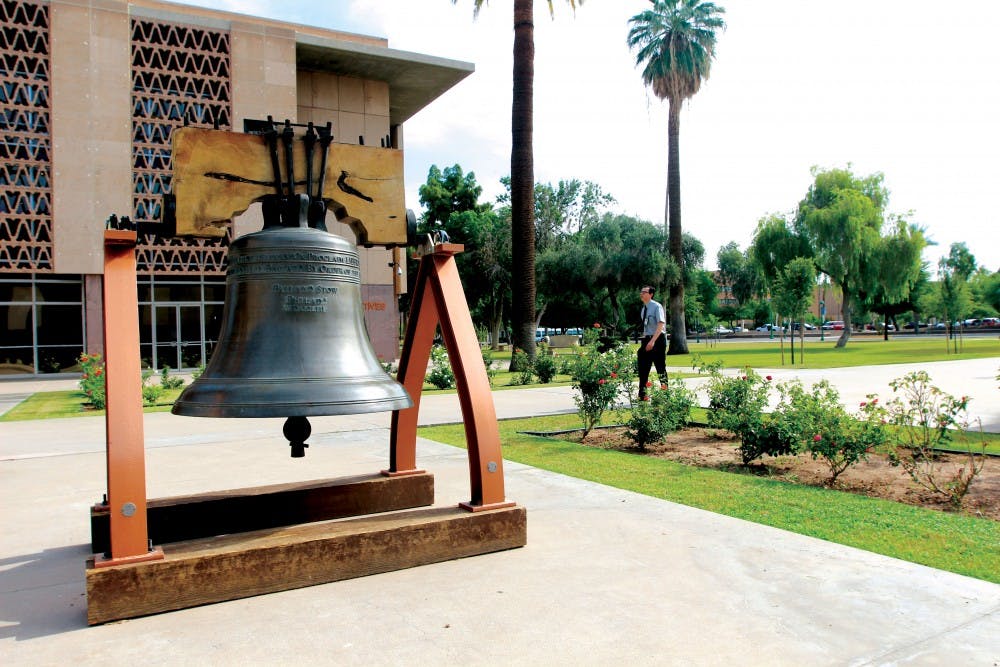Arizona has less than a month before the new fiscal year begins, and the state Legislature is no closer to passing a budget than it was three weeks ago.
The state House and Senate have to decide what portions of the budget it will allocate to all state-funded agencies, including the three public universities, before the new fiscal year begins on July 1. The Senate approved its version in mid-May, but the plan's been stalled in the House.
As the state Legislature wrangles over details of its budget plan, the universities and public schools are facing the end of a temporary 1 percent sales tax voters approved in 2010 that funded education, infrastructure and transportation.
A proposition to make the tax permanent failed to gain voter support in 2012, and the tax expired on May 31.
The Arizona Students' Association, a student-run advocacy organization that consists of members from ASU, NAU and UA, supported the failed proposition. Electrical engineering technology junior Patrick Morales, a member of ASA's Board of Directors, said the loss of the tax and the dedicated funding source it created for education will hurt university funding.
"Without it, the state's going to have to pull from the other resources it has, and most of those are already used for other things," he said.
As the temporary sales tax increase ended, the Arizona Board of Regents, which approves tuition at the three universities, released a statement applauding it for helping keep Arizona's universities through the recession.
"As a result, Arizona’s public universities were able to keep the doors open during record enrollments and emerged more efficient than ever," the statement said. "The Arizona Board of Regents is grateful for the continued support of higher education from state lawmakers. We remain a committed partner in promoting a vibrant economy for the state and making Arizona a tremendous place to receive a high-quality, low-cost education."
Morales said the state's budget may be able to handle paying for educational expenses without the dedicated revenue provided by the 1 percent sales tax increase, but that he sees it as unlikely.
"The universities are going to end up with less money," Morales said. "It's all coming out of one fund, so there's no guarantee that we'll have enough for education."
With the potential for less state funding, universities will have to raise tuition and cut back on programs, he said. In April, the Arizona Board of Regents voted to raise both ASU's and UA's tuition by 3 percent and NAU's tuition by 5 percent.
The hike was relatively modest compared to previous years, with the exception of the past year, when ASU kept tuition steady for in-state undergraduate students.
At the meeting where ABOR approved the new tuition, Regent Anne Mariucci noted that spending cuts from the state Legislature are a "new, permanent reality," and the board would have to adapt to them.
These cuts and the resulting hikes in tuition harm students, Morales said.
"Students are getting priced out," he said. "They can't pay for the higher tuition."
Along with higher tuition, students at ASU and around the country who receive federal subsidized Stafford Loans will see their interest rates double, from 3.4 percent to 6.8 percent. Only undergraduate students who qualify for need-based aid based on their Free Application for Federal Student Aid qualify for the subsidized Stafford Loans, and the new interest rate will apply to all loans issued after July 1.
The $8.8 billion budget engrossed by the state Senate on May 17 increased parity funding for NAU and ASU to $15.3 million from $10 million and adds $5 million in performance funding for the three universities if they meet goals in degrees awarded.
Reach the managing editor at julia.shumway@asu.edu or follow @JMShumway on Twitter.
Like The State Press on Facebook and follow @statepress on Twitter.




